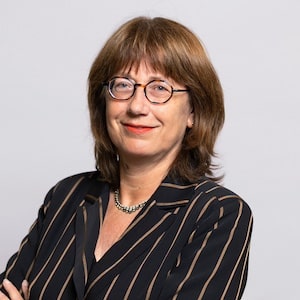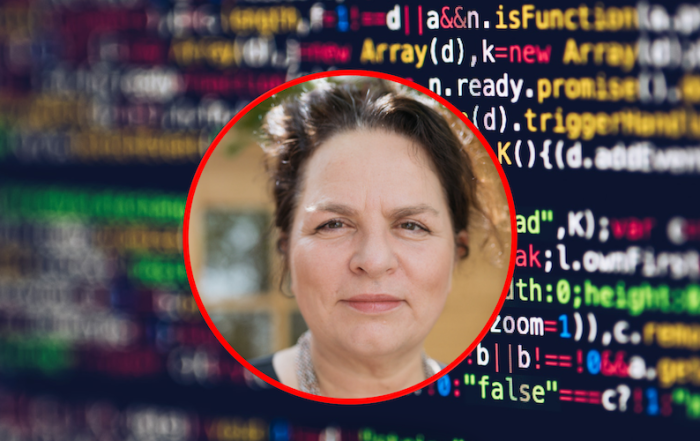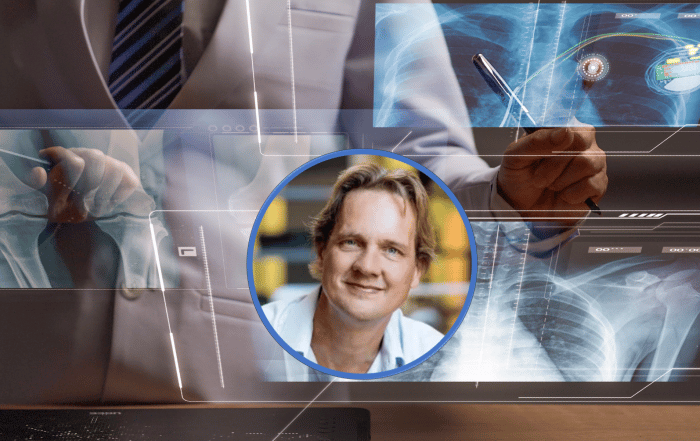Robert Metzke: ‘Digitalisering is belangrijke sleutel voor duurzame ontwikkeling’
Veel verbeteringen in de gezondheidszorg zijn mogelijk door verdere digitalisering. Mede daarom krijgt bij Philips, net als bij Amsterdam Economic Board, verantwoorde en duurzame digitalisering prioriteit. In de serie Board Talk praten we daarover met Boardlid Robert Metzke, hoofd Duurzaamheid bij Philips.
In het werk van Robert Metzke bij Philips komt alles samen waar ook Amsterdam Economic Board zich voor inzet: een slimme, groene en gezonde Metropool van Morgen. Als hoofd Duurzaamheid bij het gezondheidstechnologiebedrijf probeert hij bij te dragen aan zo’n toekomst.
“Je kunt klimaatverandering en gezondheid niet los van elkaar zien. Ons klimaat heeft grote invloed op onze gezondheid. De Wereldgezondheidsorganisatie heeft niet voor niets gezegd dat het klimaatakkoord van Parijs een van de belangrijkste gezondheidsakkoorden is van de 21ste eeuw.” En — ook niet onbelangrijk, zegt Metzke: gezondheidszorg heeft grote impact op het milieu. De sector veroorzaakt meer dan 4 procent van onze wereldwijde CO2-uitstoot, en dat terwijl meer dan de helft van de mensen niet eens toegang heeft tot goede gezondheidszorg. “In Nederland ligt dat percentage zelfs rond de 7 procent. We moeten dus hard werken aan duurzame gezondheidszorg.”
Een belangrijk onderdeel daarvan is verantwoorde inzet van data en technologie. Waarom?
“Omdat digitalisering een belangrijke sleutel is voor duurzame ontwikkeling. Dankzij kunstmatige intelligentie kunnen we data beter analyseren en voorspellingen doen. Niet alleen rondom het onderhoud van machines die we gebruiken in de zorg, maar ook om patiënten efficiënter en beter te behandelen. Tijdens de covid19-crisis nam telehealth een vlucht.” Telehealth is het toepassen van informatie- en communicatietechnologie ten dienste van de gezondheidszorg. “Ook die zorg op afstand kunnen we leveren dankzij digitalisering. Dat moet wel op een verantwoorde en duurzame manier: we moeten zorgvuldig omgaan met data en met onze hulpbronnen.”
Welke belemmeringen zijn er voor verantwoorde inzet van data en technologie? Hoe kunnen we die wegnemen?
“Techniek is volgens mij niet het probleem. Het gaat om de samenwerking. Vroeger vond ik governance een saai woord, maar uiteindelijk gaat het er wel om dat je beslissingen neemt waarbij je al je belanghebbenden betrekt. Recent verscheen het boek Bloed, zweet, maar samen, dat gaat over samenwerking tussen bedrijven voor duurzaamheid met veel praktische voorbeelden.” Collega-lid van de Board Jacqueline Cramer introduceerde eerder al het begrip netwerksturing. “Volgens mij is dat waar het om gaat: een gemeenschappelijke taal vinden voor het netwerk zodat we op verschillende niveaus dingen voor elkaar kunnen krijgen.”
Die samenwerking kan ook helpen om nodige veranderingen te versnellen en op te schalen. “Om mensen mee te krijgen, moet je in de eerste plaats een goed verhaal hebben waar zij zich in kunnen vinden en aan kunnen bijdragen. Amsterdam Economic Board heeft dat met die groene, slimme en gezonde toekomst. Philips heeft zich als doel gesteld dat we vanaf 2030 jaarlijks 2,5 miljard mensenlevens verbeteren.”
Aan welke oplossingen rondom verantwoorde inzet van data en technologie werken jullie concreet?
“Als Board zijn we nauw betrokken bij AI Technology for People, een initiatief van Amsterdamse kennisinstellingen, gemeente Amsterdam en Amsterdam Economic Board. Dat zorgt ervoor dat we kunstmatige intelligentie zó kunnen inzetten dat we er als samenleving iets aan hebben. De basis van dit programma is verantwoord datagebruik. We gaan ethisch om met data, zorgen dat kunstmatige intelligentie bijdraagt aan het welzijn van mensen en de techniek moet robuust zijn. Ook hanteren we het ‘fairness’-principe: we zijn alert dat we discriminatie door AI tegengaan.”
Zijn dat soort principes ook beperkend in wat je wel en niet kunt met data?
“Uiteraard. Maar verantwoord omgaan met data is een absolute voorwaarde voor gebruik van data en AI. Het alternatief zijn modellen, die niet passen bij onze normen en waarden. Daar is iedereen die hieraan meewerkt het over eens. Die uitgangspunten gelden bijvoorbeeld ook voor de Gezondheidsdata Infrastructuur waar we als Board aan werken, samen met onder meer ziekenhuizen, huisartsen, het NKI en universiteiten. We zijn nu bezig met een aantal use cases, hebben een kwartiermaker aangesteld en werken aan de financiering. Het idee is dat we het platform eind dit jaar verder uitbreiden. Een van de use cases was een risicoclassificatie voor covid-patiënten, waarvan huisartsen in de regio gebruik konden maken. Op basis van algoritmes, ontwikkeld op hun eigen data, konden zij een inschatting maken van welke patiënten welke zorg nodig hadden.”
Duurzame digitalisering gaat ook over zorgvuldig omgaan met onze grondstoffen.
“Inderdaad. Digitalisering kan bijdragen aan dematerialisering: al die functies die we nu op onze telefoon hebben waren twintig jaar geleden een kamer vol met spullen. Ook kunnen we dankzij digitalisering de zorg toegankelijker maken en bijvoorbeeld voorkomen dat mensen moeten reizen voor een afspraak met de dokter. We moeten daarvoor wel goed meetbaar maken wat we doen. Bij Philips werken we daarvoor met het Science Based Targets initiative, een onafhankelijke partij die al onze groene ambities en plannen doorrekent. Onze doelstellingen en of we die halen, meten we zorgvuldig. Deze gaan vóór de belangen van aandeelhouders. We kiezen ook steeds vaker voor gerecyclede materialen en ontwerpen producten modulair, zodat onze apparatuur beter onderhouden en gerepareerd kan worden. In 2025 zal 100 procent van onze producten volgens ons ecodesign-programma ontwikkeld zijn.”
Wat kunnen bedrijven morgen al anders gaan doen om ook bij te dragen aan verantwoorde inzet van data en technologie?
“Die netwerksturing waar ik het net over had is ook belangrijk voor je interne organisatie: ook binnen je bedrijf moet je partners zoeken om samen verandering voor elkaar te krijgen. Die manier van samenwerken hebben wij afgekeken bij Amsterdam Economic Board en dat werkt voor ons erg goed. Het heeft ons ook geholpen om de bedrijfsdoelstellingen te koppelen aan de doelstelling van ons bedrijf om in 2030 2,5 miljard mensenlevens te verbeteren. We konden dit doel zo kwantificeren en laten zien wat het voor de verschillende afdelingen betekende. We hebben onze duurzaamheidsdoelstellingen ook gekoppeld aan ons beloningsbeleid en hebben bijvoorbeeld cursussen ontwikkeld waarin onze product engineers en designers leren over circulair ontwerpen. Ook ons inkoopbeleid is hierop aangepast. Zo helpen wij onze toeleveranciers hun emissies te verlagen, arbeidsomstandigheden te blijven verbeteren en duurzaam met materiaal om te gaan. Bij Amsterdam Economic Board staat de gemeenschappelijke visie ook al als een huis. Volgens mij is het de kunst om die nu nog meer naar de praktijk te vertalen, zodat het voor mensen makkelijker wordt om eraan bij te dragen. Hoe kun je bijvoorbeeld in de metropool nog duidelijker sturen op levenskwaliteit en brede welvaart, en bedrijven en beleidsmakers ondersteunen om hun plannen hieraan te toetsen?”
Waarom is Amsterdam Economic Board daar eigenlijk een geschikt platform voor?
“Omdat Amsterdam Economic Board een waardevol en mooi platform is dat de regio verbindt. En de regio heeft een uitstekende schaalgrootte om dingen voor elkaar te krijgen. Als je als bedrijf alleen, of als individu aan de slag gaat met dit onderwerp kun je moedeloos worden. Waarom zou je iets doen als er in China nog elke week een kolencentrale wordt gebouwd? In de regio sta je dicht genoeg bij bedrijven en burgers om relevant te zijn en ver genoeg af van de soms wat kortademige landelijke politiek. Je ziet ook dat burgemeesters doorgaans veel progressiever zijn over duurzame ontwikkeling dan landelijke bestuurders. Bovendien: er leven 2,5 miljoen mensen in de Metropool Amsterdam, er zijn veel grote bedrijven en ngo’s gevestigd: als we hier iets voor elkaar krijgen, kunnen we ook anderen inspireren.”
Tekst: Mirjam Streefkerk
Méér Board Talk
Het interview met Robert Metzke is deel 16 uit de reeks Board Talk. Hierin praten we met Boardleden over de grootste uitdagingen voor de Amsterdamse metropool. Een regio die een duurzame, gezonde leefomgeving biedt, verantwoorde digitalisering en waardevol werk voor iedereen. Dit zijn ook de belangrijkste thema’s voor Amsterdam Economic Board. Lees ook de andere interviews in de serie Board Talk.
28 maart 2022
Meer weten over
Neem contact op
Blijf jij ook op de hoogte?
8x per jaar nieuws en events uit de regio: schrijf je in voor de Board Update nieuwsbrief
Deel dit artikel
Wil je op de hoogte blijven?
Volg ons dagelijks op LinkedIn en schrijf je in voor de Board Update nieuwsbrief.
Lees ook deze berichten
- Een nieuwe lichting gedreven jongeren is aangetreden bij Young on Board, de ...
- Met de selectie van vier kanshebbers is de regionale voorronde van de ...
- Met meer dan 80 ondernemers, 40 investeerders en diverse dienstverleners bood LSH Capital Match ...





